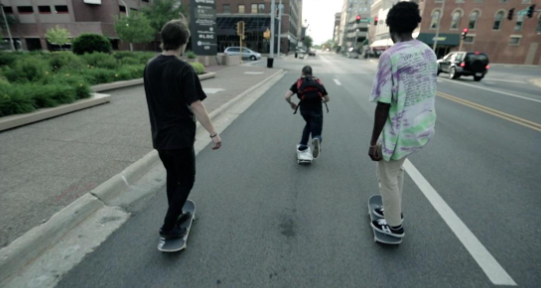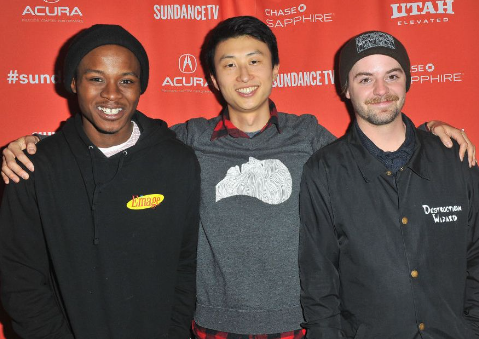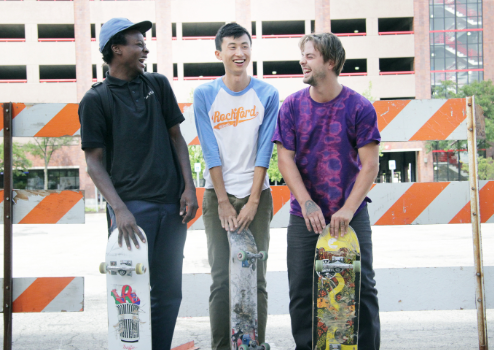Minding the Gap (2018) starts off as a simple coming of age documentary observing three main subjects, Keire Johnson, Zack Mulligan, and Bing Liu (who is also the director and filmmaker), in the Rust Belt. The trio grows up on the streets of Rockford, Illinois, where skateboarding serves as more than just a fun pastime to hang out with friends. It becomes an escape from their troubled home lives and serves as an outlet for difficult emotions.
Skateboarding also becomes a canvas for depicting both healthy and toxic masculinity. The film portrays the consequences of domestic abuse between generations, but it also captures moments where they open up for the camera, delving into their emotions simply because someone asked. The observed toxic masculinity in the film is mirrored in the experiences of our main subjects both at home and in skateboarding. They smash their boards to pieces at the slightest crack and stomp and scream when unable to land a trick. In their immaturity, they express their frustrations through violence, illustrating that this is the only way they know how to cope.
Our subjects want to leave Rockford for a better life elsewhere, hoping to escape the challenges of a deindustrialized city. This is a typical element seen in many Rust Belt movies. However, the film reveals a poignant reality as the trio often end up falling into the same vicious cycle as everyone else. While this aspect is commonly depicted in Rust Belt movies, this film goes further to demonstrate the intersectionality between each topic, illustrating how they become intertwined and influence one another.

The cycle of toxic masculinity comes full circle, unfortunately. The trio serves as a perfect example of how poverty can amplify issues. Impoverished towns are likely to have fewer instances of healthy relationships that model proper, functioning family dynamics. This is evident in the struggles of our main trio.
Zack unexpectedly becomes a young dad, but vows to be a better dad to his son than his own dad was to him. He has an epiphany, realizing the need to be a responsible adult, hold a steady job, reduce his drinking, and channel his energy into providing for his newborn child. However, when his partner consistently goes out, leaving him with the full parenting responsibility, a transformation occurs in Zack’s behavior. The viewer witnesses him becoming the very thing he vowed never to be. He turns abusive, indulges in excessive drinking, and falls short of being the parent he aspired to be. Zack even admits to hitting his partner, and justifies it as a way to keep her “in check.”
We observe additional examples in Bing and Keire’s lives. Bing’s mother marries her stalker, and predictably, his new stepfather is incredibly abusive towards him. With Bing’s mother constantly working, he is left at home with her retired husband, creating a perilous environment that Bing is desperate to escape from. In Keire’s case, he recounts how his father beat him mercilessly for things as simple as “talking back.”

Throughout their pain and suffering, Bing, Zack, and Keire find solace in their friendship, offering an escape from the hostility of their home lives. Witnessing them channel their time and energy into a sport, rather than getting involved in drugs and other illegal activities, instills hope that they will resist the many temptations often present in crumbling Rust Belt towns.
As Bing establishes connections with Zack and Keire, they become more eager to open up and discuss their thoughts and feelings. Growing up in similar situations, they find common ground and feel comfortable sharing sensitive topics. This comfort is evident as they even shed tears in front of the camera while discussing their childhood and the associated difficulties. While they may exhibit the toxic masculinity prevalent in their upbringing, they also demonstrate an ability to express their emotions in a healthy way.

Comments